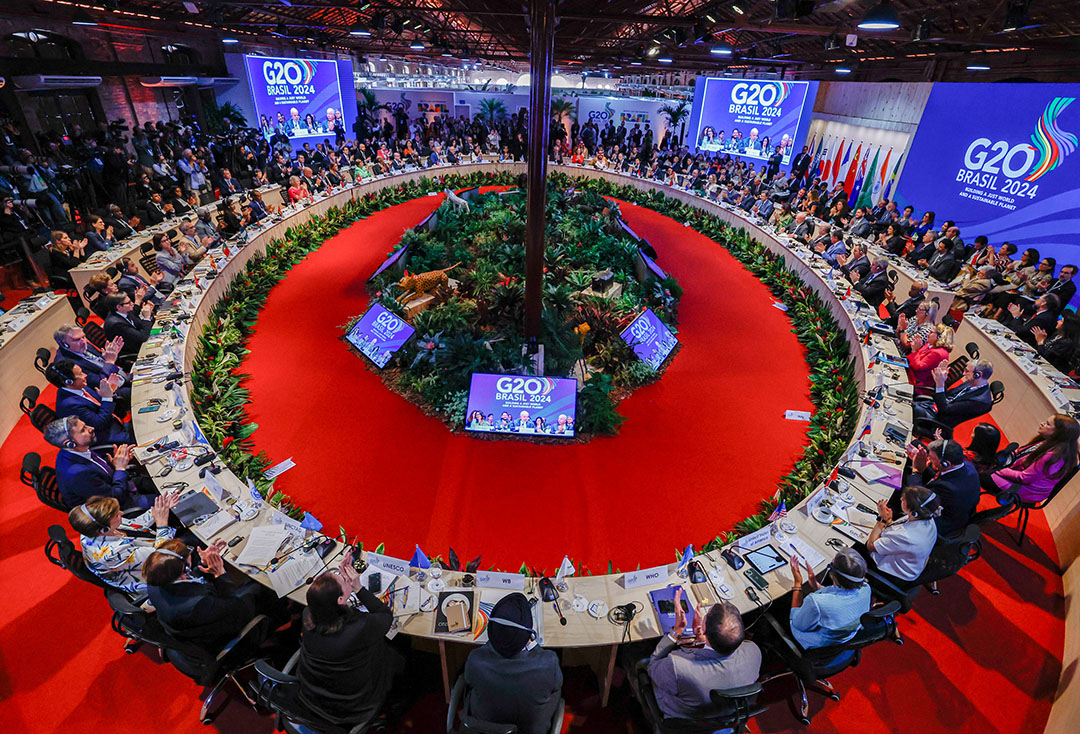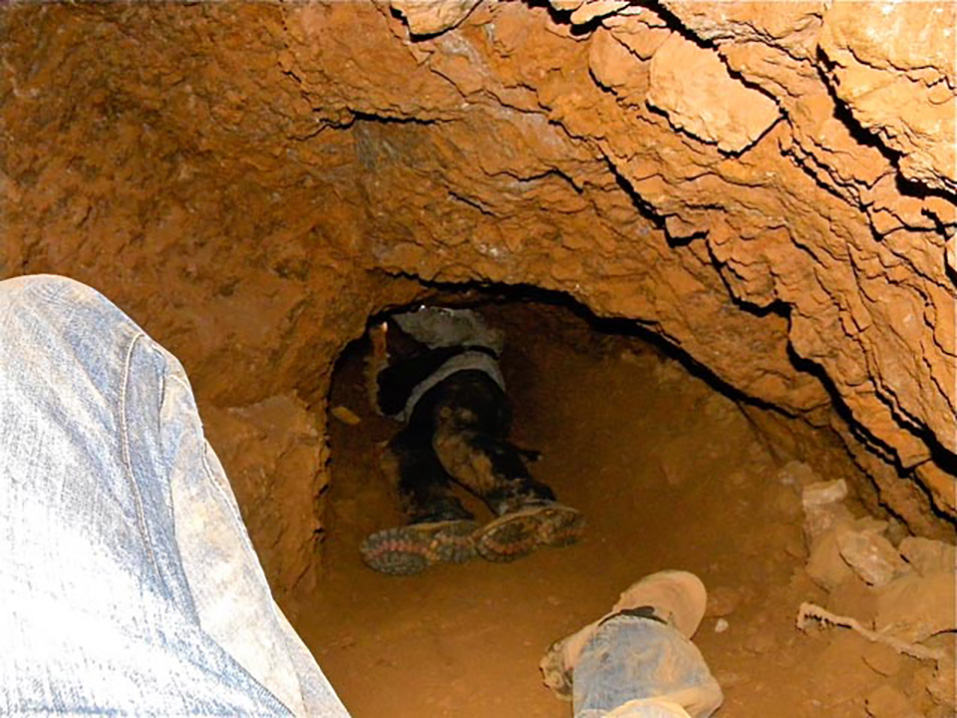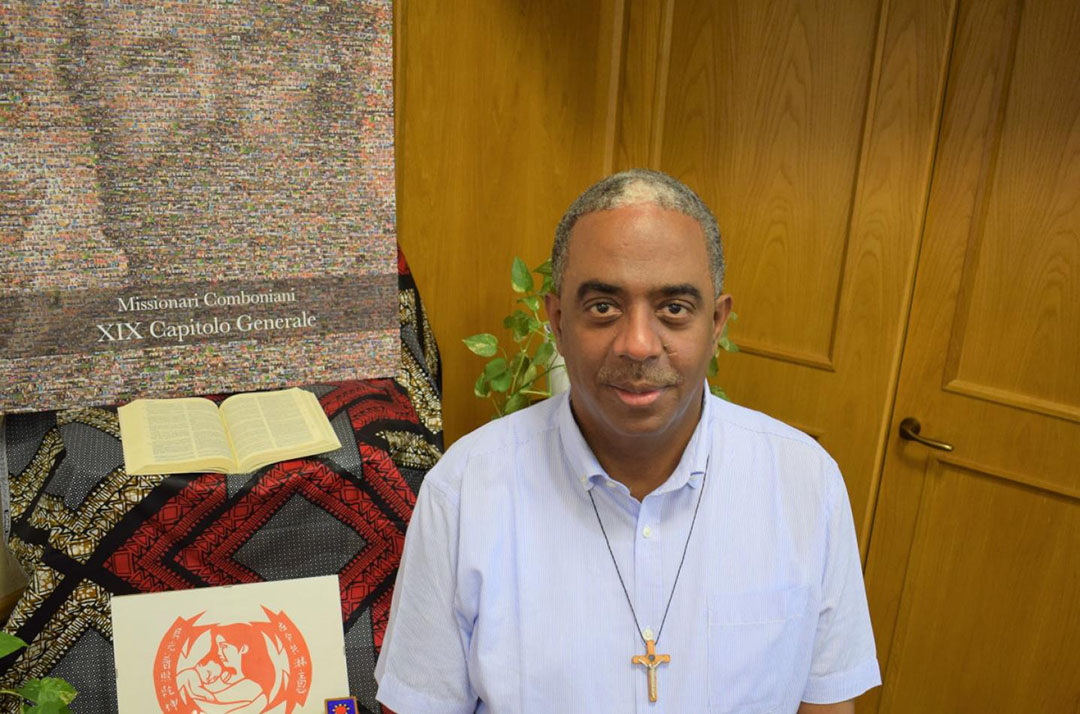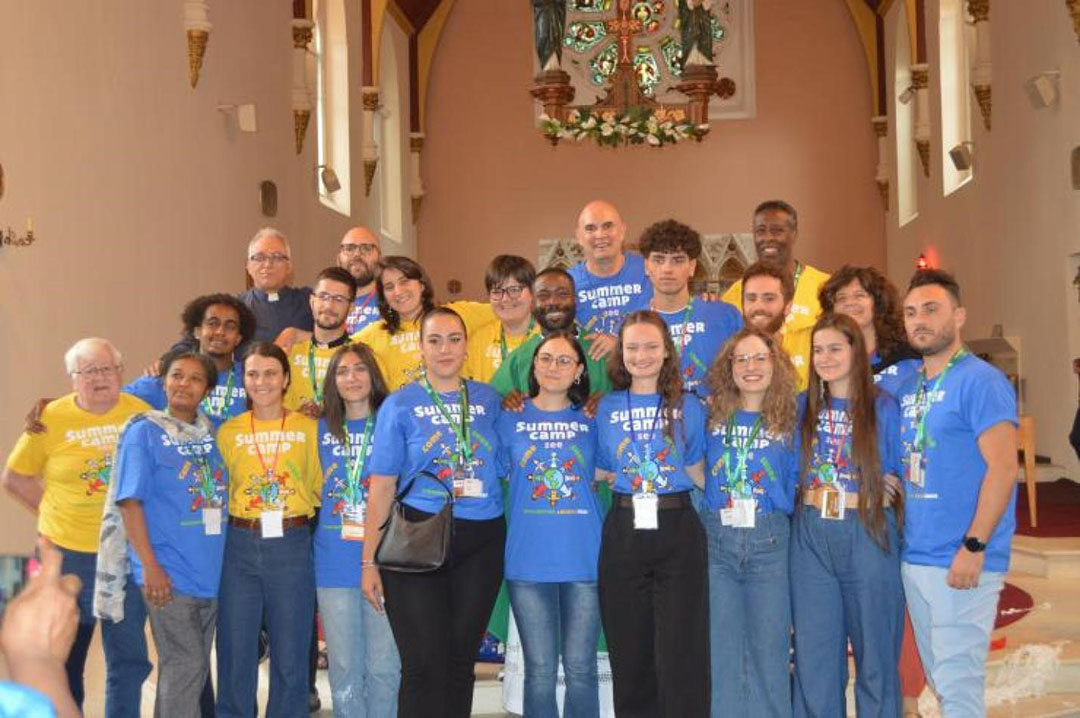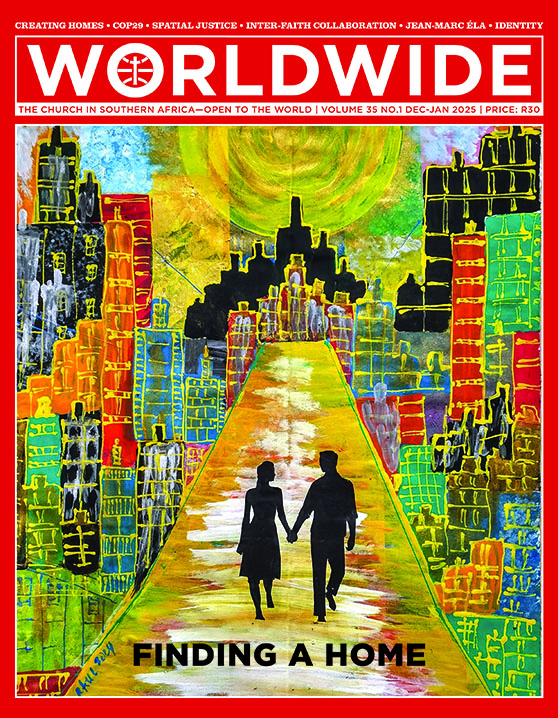
FINDING A HOME
This painting represents the reality of so many people in the world looking for a place to stay, especially as they flock into crowded modern cities, searching for jobs or fleeing from various situations of conflict. The need to create living spaces for them is acute. Like Joseph and Mary, who found no place at the inn, millions of people risk ending up unsheltered in the streets and deprived of a dignified dwelling which they can call home.
Painting by Fr Raul Tabaranza MCCJ
RADAR • COP29

CLIMATE SUMMITS MATTER
The Cop29 UN climate talks in Azerbaijan concluded on 24 November 2024, 12 days after its opening. Delegates from nearly 200 countries met to discuss key issues: a new global climate finance goal and what needs to be done about fossil fuels.
BY ADAM MORTON FROM BAKU | AZERBAIJAN
Importance of meeting
What happened in Baku is significant, no matter how frustrating and inadequate the process and its outcome may seem. Climate summits draw tens of thousands of delegates from across the globe to schmooze, monitor, lobby and protest. The talks seem routinely mired in disagreement.
Wealthy nations, responsible for most historic emissions, have mostly not acted on the scale necessary. China often seems publicly indifferent about the process; however, it had significant representation at the summit and continues building renewable energy at a historically staggering rate. Saudi Arabia’s pro-fossil fuel obstructionism is so blatant, it now says the quiet bit out loud. More than 1 700 fossil fuel lobbyists turned up alongside a huge presence from clean energy and climate solution interests.
Meanwhile, global greenhouse gas emissions are yet to start declining, rising an expected 0.8% this year, with the planet racing towards a 1.5⁰C of heating in little more than a century, and extreme weather and heatwaves taking a heavy toll on lives, livelihoods and nature.
Despite all this, what happens at UN climate talks still matters, and will continue to even as Donald Trump pulls out, and even though the system is inefficient.
Speaking out
Representatives from the Pacific, the Caribbean and Africa argue forcefully that the UN climate process is their chance to have a voice and pressure for action on an issue that, for them, is a matter of life and death.
The UN talks have made a difference. Analyses found the landmark 2015 Paris agreement reduced the expected heating this century, sending a signal to major investors that led to a sharp increase in renewable energy. Cop28, held in Dubai last year, agreed that global investment in renewables needs to be tripled by 2030, and the bulk of the non-fossil energy investment is going that way. It didn’t mean fossil fuel development stopped, but it helped set a trend that is increasing momentum, in part because it now makes clear economic sense.
Climate finance is not charity
The big issue on the table in Baku was climate finance. The wealthy need to pay to help developing countries build clean economies, adapt to inevitable change and repair the escalating damage caused by climate breakdown. This is not charity. Those most responsible for the CO2 pollution, fuelling worsening extreme weather, have a responsibility to those who have emitted comparatively little, and in some cases virtually nothing.
In Baku there was a common understanding that rich nations need to stump up much more than they have in the past, but the pledged amount has been very arduous to agree upon. Furthermore, not everyone agreed on the level of responsibility of countries that were classed as developing nations in the 1990s but are now among the biggest emitters—not just China, but the gulf states too.
Finally, rich and poor countries concluded a trillion-dollar deal in the early hours of the morning of Sunday the 24th, after marathon talks and days of bitter recriminations which ended in what campaigners said was a “betrayal”. The developing world will receive at least $1.3tn a year to help them shift to low-carbon economies and cope with the impacts of extreme weather, by 2035, according to sources of information from the Guardian.
However, only $300bn of that sum will come in the form of grants and low-interest loans from the developed world. The rest will have to emanate from private investors and a range of potential new sources of money, such as possible levies on fossil fuels and frequent flyers, which have yet to be agreed.
World’s efforts persist
At a time of global disruption, UN climate summits are a remarkable collection of people from across the planet. The Taliban were present; so were representatives from both Israel and Palestine.
Russia had a major visual presence despite saying little publicly during the talks. Ukraine’s pavilion had striking white walls, made of recycled paper and living seeds, detailing the devastating impact of Russia’s invasion on its environment, including 14 documented cases of ecocide at an estimated cost of US$71bn. Nearly 900sq km of Ukraine’s forests have burned down, six of the country’s nuclear reactors are occupied, and last year’s destruction of the Kahovka hydroelectric dam released enough water to hydrate the world for two days. But the overarching message on Ukraine’s pavilion walls was one of resilience. “Despite Russian terror, which is jeopardising the ecosystems, energy and food security of the whole world, Ukraine remains a reliable partner in achieving global climate goals”. Even in unlikely places, the effort continues.
Source: https://www.theguardian.com

